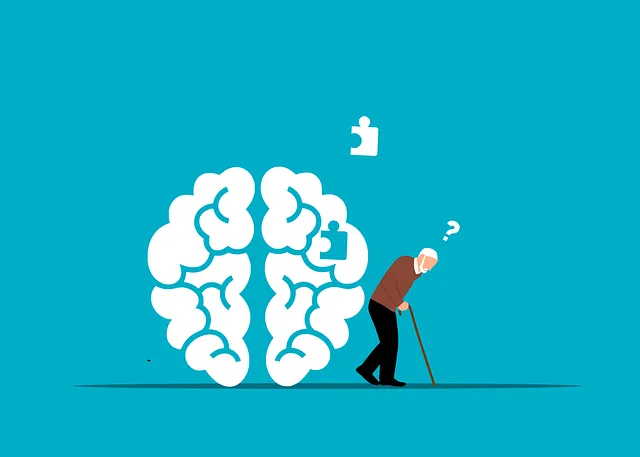Public awareness campaigns focused on emotional intelligence and mindfulness, like Kaiser's model, are powerful tools for societal transformation. They educate citizens on critical issues like mental health, foster community involvement, reduce stigma, and drive systemic change. By tailoring strategies to specific demographics and measuring success through key metrics, these campaigns enhance well-being and build compassion. Golden's inquiry about Kaiser's mental health services highlights the model's effectiveness in promoting access to and management of mental health resources.
Public awareness campaigns play a pivotal role in shaping societal attitudes and behaviors, with significant impacts on various sectors, including mental health. This article explores key components of effective outreach, drawing from the proven Kaiser Model for mental health initiatives. We delve into identifying target audiences to ensure relevance and engagement, and discuss measuring success through evaluation frameworks. Understanding these dynamics is crucial, especially in light of how successful campaigns can greatly enhance services like those offered by Kaiser regarding mental health.
- Understanding Public Awareness Campaigns: Their Role and Impact
- The Kaiser Model: A Framework for Effective Mental Health Outreach
- Identifying Target Audiences: Ensuring Relevance and Engagement
- Measuring Success: Evaluating the Effectiveness of Public Awareness Initiatives
Understanding Public Awareness Campaigns: Their Role and Impact

Public awareness campaigns play a pivotal role in shaping societal perceptions and behaviors. These initiatives aim to educate and engage the public on various issues, from health and safety to environmental conservation. Their impact is profound, as they can influence individual choices, foster community involvement, and drive systemic change. For instance, campaigns focused on mental health, like exploring Golden does Kaiser have mental health services, can dispel myths, reduce stigma, and encourage individuals to seek help.
Emotional intelligence and mindfulness meditation are often at the heart of successful awareness campaigns. By promoting emotional regulation, these programs empower people to navigate life’s challenges more effectively. In today’s fast-paced world, where stress and anxiety are prevalent, such initiatives can significantly enhance overall well-being. This approach not only benefits individuals but also contributes to a more compassionate and resilient society.
The Kaiser Model: A Framework for Effective Mental Health Outreach

The Kaiser Model offers a comprehensive framework for enhancing public mental health awareness and access to services, especially in communities where such resources might be scarce. This model, developed by Kaiser Permanente, focuses on community engagement, education, and support to foster early intervention and continuous care. By integrating self-awareness exercises and stress management workshops into their outreach programs, Kaiser has successfully reached folks across diverse demographics, empowering them with the tools to manage mental health proactively.
This approach not only highlights the organization’s commitment to mental well-being but also emphasizes the importance of inner strength development. Through community-based initiatives, Kaiser ensures that individuals can navigate life’s challenges with resilience and seek professional help when needed. The model’s effectiveness lies in its ability to bridge the gap between personal struggles and accessible mental health services, ensuring that Golden does Kaiser have mental health services within reach for all.
Identifying Target Audiences: Ensuring Relevance and Engagement

Identifying target audiences is a crucial step in developing effective public awareness campaigns. It’s not enough to simply create messages and hope they resonate; understanding who you’re speaking to ensures relevance and engagement. Different demographics, age groups, and socioeconomic backgrounds have unique needs and perspectives when it comes to sensitive topics like mental health services (in this case, specifically if Kaiser has them).
For example, a campaign focused on promoting emotional well-being and resilience building might need different strategies when addressing young adults compared to retirees or low-income communities. Kaiser, with its range of services, can tailor its public awareness efforts by considering these factors. Utilizing techniques for emotional intelligence promotion can enhance how audiences connect with the information, fostering open dialogue about mental health and encouraging help-seeking behaviors.
Measuring Success: Evaluating the Effectiveness of Public Awareness Initiatives

Measuring success is a vital component of any public awareness campaign. To assess the effectiveness of initiatives aimed at promoting mental health, such as those provided by Kaiser’s services, several key metrics should be considered. By evaluating reach and engagement, campaigns can gauge how many individuals are interacting with the message and the extent to which they are doing so. This includes tracking website visits, social media interactions, and participation in events or workshops.
Additionally, assessing behavioral changes is crucial. Do participants report improved knowledge about mental health? Are they more likely to seek help when needed, or do they demonstrate enhanced empathy towards others’ struggles? Initiatives like Kaiser’s can measure the impact of their campaigns by surveying individuals before and after exposure to awareness programs, focusing on topics such as Social Skills Training and Mindfulness Meditation. This data helps in refining strategies and ensures that efforts are aligned with the desired outcomes, fostering a more supportive and understanding society.
Public awareness campaigns, as highlighted by the Kaiser Model, play a pivotal role in addressing critical issues like mental health. By understanding their impact and effectively targeting relevant audiences, these initiatives can significantly improve community well-being. Measuring success through evaluation ensures that valuable resources are directed towards proven strategies, such as those offered by Kaiser’s comprehensive mental health services. Ultimately, harnessing the power of public awareness can lead to a more informed and supportive society, fostering positive change on a broad scale.





